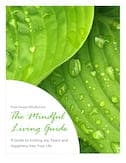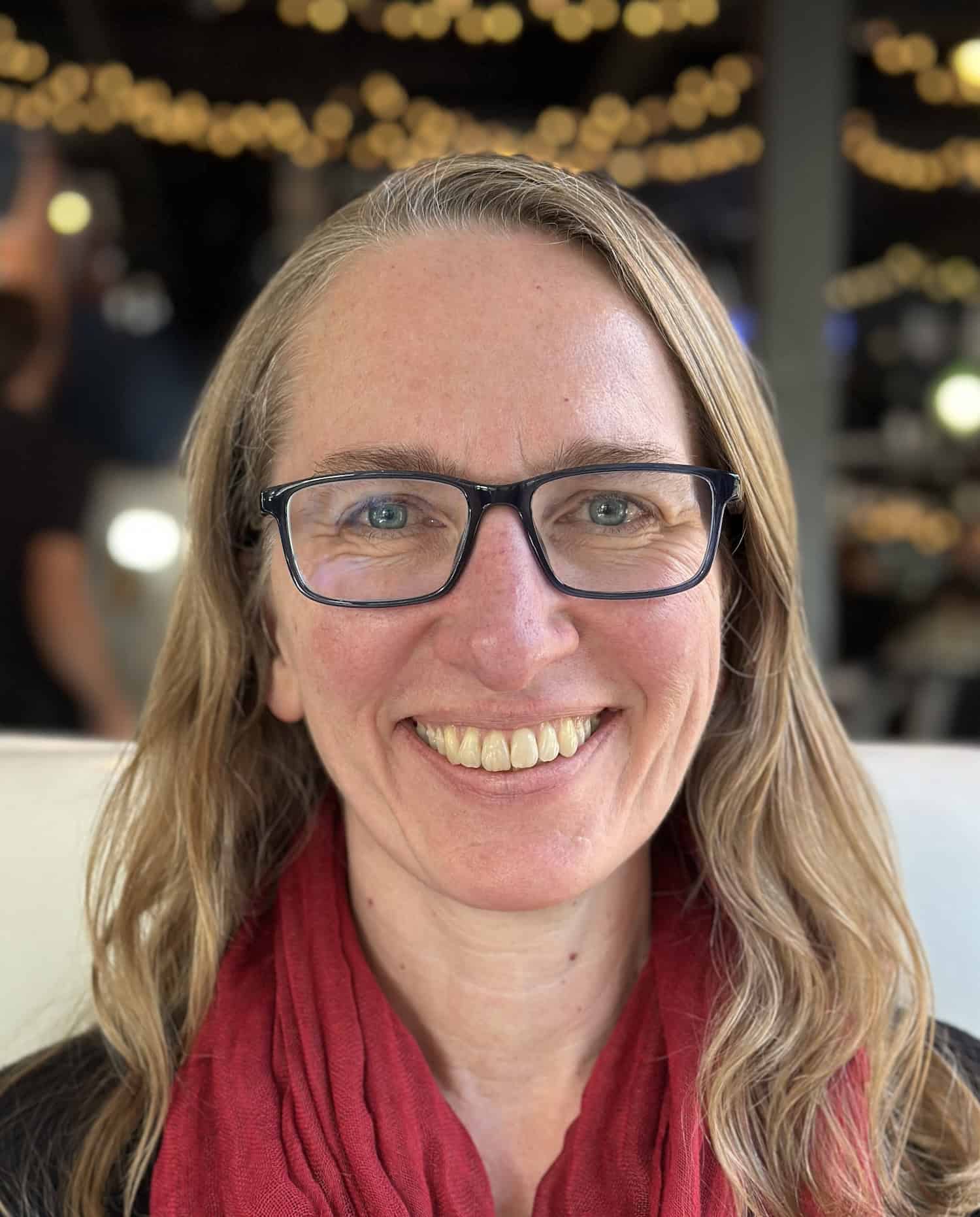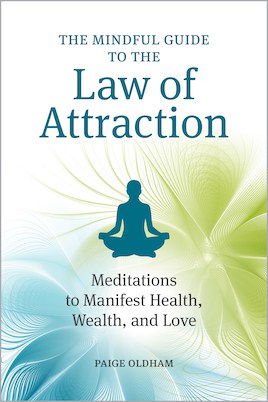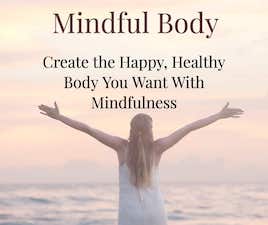With all the craziness going on in the world today (and ‘today’ could refer to now or 100 or 500 years ago), it’s easy to get caught up in the madness and lose our sense of ourselves. The monkey mind picks up on the changes it sees and starts screeching because it hates changes. It will do anything to maintain the status quo which, of course, is impossible.
Because we can’t control the world we live in, the monkey screeches and increases our levels of stress and anxiety. It makes us feel like we’re in control when, in reality, all we can control is our response to what’s happening in the world around us.
Mindfulness can help you pause to notice the responses you’re choosing, even if they’re not conscious choices. I don’t know about you, but anxiety and depression are not responses that I would consciously choose. Focusing on what I’m going to do (what I can control) given what’s happening (what I can’t control), I can feel better knowing that I can empower myself and do things that support me. If I focus on what’s happening around me, it seems that feelings of helplessness, anxiety or depression are inevitable.
Being at home more than usual lately has given me time to revisit the works of some of the masters of mindfulness: Jon Kabat-Zinn and Thich Nhat Hanh. Sometimes we need to be reminded of what we know when the world seems so uncertain. Getting back to the basics by listening to their classic works has helped me to reconnect with myself and slow the world down for a bit – like finally exhaling fully after holding my breath for too long.
Recently, I discovered a company called BetterListen! that has cultivated the best of the best in personal development to help its customers lead “a more mindful, happy and engaged life.” What follows are my reviews of some of their books and programs that I have enjoyed. Because I believe in BetterListen!, I have become an affiliate of theirs, so if you purchase any of these works, I will receive a small commission at no additional cost to you. The following works have been truly helpful for me, especially in these crazy times.
Guided Mindfulness Practices by Jon Kabat-Zinn
 Jon Kabat-Zinn started his work in the late 1970’s at the University of Massachusetts Medical School experimenting with the effectiveness of mindfulness practices on the healing process. He led voluntary groups of patients through a variety of meditation and hatha yoga practices as part of their healing process. He saw considerable improvements in those participating in the program and expanded and formalized the program into the Stress Reduction Clinic and later the Center for Mindfulness in Medicine, Health Care, and Society at the University of Massachusetts Medical School.
Jon Kabat-Zinn started his work in the late 1970’s at the University of Massachusetts Medical School experimenting with the effectiveness of mindfulness practices on the healing process. He led voluntary groups of patients through a variety of meditation and hatha yoga practices as part of their healing process. He saw considerable improvements in those participating in the program and expanded and formalized the program into the Stress Reduction Clinic and later the Center for Mindfulness in Medicine, Health Care, and Society at the University of Massachusetts Medical School.
These recordings are Kabat-Zinn taking you through all of the practices that are part of the Mindfulness-Based Stress Reduction (MBSR) program and are more fully described in his classic book, Full Catastrophe Living: Using the Wisdom of Your Body and Mind to Face Stress, Pain, and Illness, which would be a great companion to these recordings. His soothing voice helped to calm and ground me quickly before and during each practice.
I looked up these recordings on Amazon and saw that they’re normally sold in three separate series. BetterListen! has bundled the three series into one and added a video of Jon Kabat-Zinn speaking about his life’s work: The Stress Reduction Clinic at the University of Massachusetts where he started the Mindfulness-Based Stress Reduction (MBSR) program that is used around the world today.
In many interviews that I’ve seen with Kabat-Zinn (including this video), he speaks about Henry David Thoreau’s experiences at Walden Pond as he wrote the classic, Walden. Kabat-Zinn makes it clear how much hasn’t changed in human nature as he quotes Thoreau expounding on his need to escape the craziness of the world and get back in touch with what is truly important – in 1845.
“I went to the woods because I wished to live deliberately, to front only the essential facts of life, and see if I could not learn what it had to teach, and not, when I came to die, discover that I had not lived.” ~Henry David Thoreau, Walden
Mindfulness is the essence of “living” as Thoreau defined it – being in the present moment as much as possible to enjoy and learn from life as it presents itself. These recordings create the opportunity to develop a practice of your own to live more mindfully.
“Things do not change; we change.” ~Henry David Thoreau, Walden
Mindfulness in the Digital Age with Jon Kabat-Zinn and Steve Stein
 In this online program, Steve Stein, founder of BetterListen!, interviews Jon in an informal, online video format covering far-ranging topics such as:
In this online program, Steve Stein, founder of BetterListen!, interviews Jon in an informal, online video format covering far-ranging topics such as:
- A digital Sabbath
- What does it even mean for any of us to “do the right thing?”
- The science of mindfulness
- Mindful parenting
- Coping with nitty-gritty everyday challenges to living mindfully in this world of perpetual digital distraction.
Toward the end, Jon leads the viewer in a 10 minute guided mindfulness practice.
I found it interesting to see how Kabat-Zinn has evolved – and stayed the same – over the 20 years between his recording of the mindfulness practices in the previous program and this interview. He’s still quoting Thoreau but has dropped mentions of faxes being a reason for our busyness and distraction.
All of his teachings remain as relevant today as they were over forty years ago. The more things change, the more they stay the same requiring us to get back to the basics of our practices.
Healing Oneself, Healing the World with Thich Nhat Hanh
 This audio program is 12 hours of material recorded in 2013 when Thich Nhat Hanh presented at the Magnolia Grove Monastery during a 6-day retreat on the theme of Healing Ourselves, Healing the World.
This audio program is 12 hours of material recorded in 2013 when Thich Nhat Hanh presented at the Magnolia Grove Monastery during a 6-day retreat on the theme of Healing Ourselves, Healing the World.
As with Kabat-Zinn’s presentations, listening to Thich Nhat Hanh calmed my senses and helped me to focus on the present moment (after noticing in the first minute or two that my mind was saying, “Can we pick up the pace here??” I’m human too.).
Some of the concepts that he covers are:
- Conditions of happiness
- Deep looking – insight can release the tension and bring healing
- Mindfulness is a method to insight using our in-breath and out-breath
- Sutra on Full Awareness of Breathing
- Four domains – body, feelings, mind, objects of mind
- Sangha – the power of collective energy (Sangha is a Buddhist community of monks, nuns, novices, and laity)
- The art of happiness and the art of suffering
- The Four Noble Truths
- The Four Kinds of Nutriments
Given the theme of “Healing Ourselves, Healing the World,” he discusses how we can use mindfulness and compassion to heal ourselves and the world. Being open to our not knowing how to heal ourselves and open within a safe community like a sangha, we can be vulnerable to learn and receive the healing energies from ourselves and others.
Like his other works (Being Peace is one of my favorites), this program shows how simple living mindfully can be if we allow it.
I have been very grateful for the extra time at home alone and with my family that the latest global crisis has afforded me. It has helped me to see how attached I can become to work and how easy it can be to let go of that to focus on what is truly important – being present for myself and those who are most important to me.
If you’re looking for some great programs to re-center yourself, reduce stress and grow your mindfulness practice, check out my Recommended Resources page.






 The Mindful Living Guide
The Mindful Living Guide




Wonderful program you are linking too.
And I agree fully on the fact that change is the only constant. I often struggle with this concept and that leads to resistance to whatever is happening because I want reality to be a certain way. But reality does not always bend to my will ;-). Let’s just say it is a work in progress on my side.
As you’ve recently posted, Olivier, acceptance is the key to happiness. The Universe usually has better plans for us than we could contrive. It’s up to us to work toward what we want while accepting what happens as a result of our actions.
I love the meditation and mindfulness resources you have shared here Paige. It’s SO SO necessary in this uncertain time. I’ll be clicking through and checking them out. Thank you!
Thank you, Zeenat! Anytime is a good time for meditation and mindfulness. 🙂
These are great resources, Paige for any time, but especially now. I will definitely be checking these out. Thanks!
Thank you Cathy! I found them to be very helpful.
The concept “Healing Ourselves, Healing the World,” totally resonates with me Paige. Thank you for this list of resources…it’s a great reminder to me that the spirit within has a power far beyond our understanding.
I couldn’t agree with you more Elle. The energy we send out affects those around us in ways we don’t fully understand. I’ve certainly found that when I work toward my own happiness, the world around me seems to change in positive ways.
Thank you for these wonderful mindfulness teachings. I am not familiar with any of them. I love the teachings of Jon Kabat-Zinn and the first offering looks really good to me. I like that you can go at your own pace. That usually works better for me. Thank you for this.
Yes, you can go at your own pace with all of these. I especially enjoy hearing these teachings from the authors themselves instead of simply reading them from a book. You can sense their healing energy in their voices.
These are fantastic resources, Paige. I love the MBSR practices with Jon Kabat-Zinn. They are powerful and life-changing. I’ve never had a chance to listen to Thich Nhat Hanh, but reading his teachings have definitely brought me peace.
The simple practices that make up the MBSR program are truly powerful and healing and can be done by anyone. For me, Thich Nhat Hanh’s voice is peace.